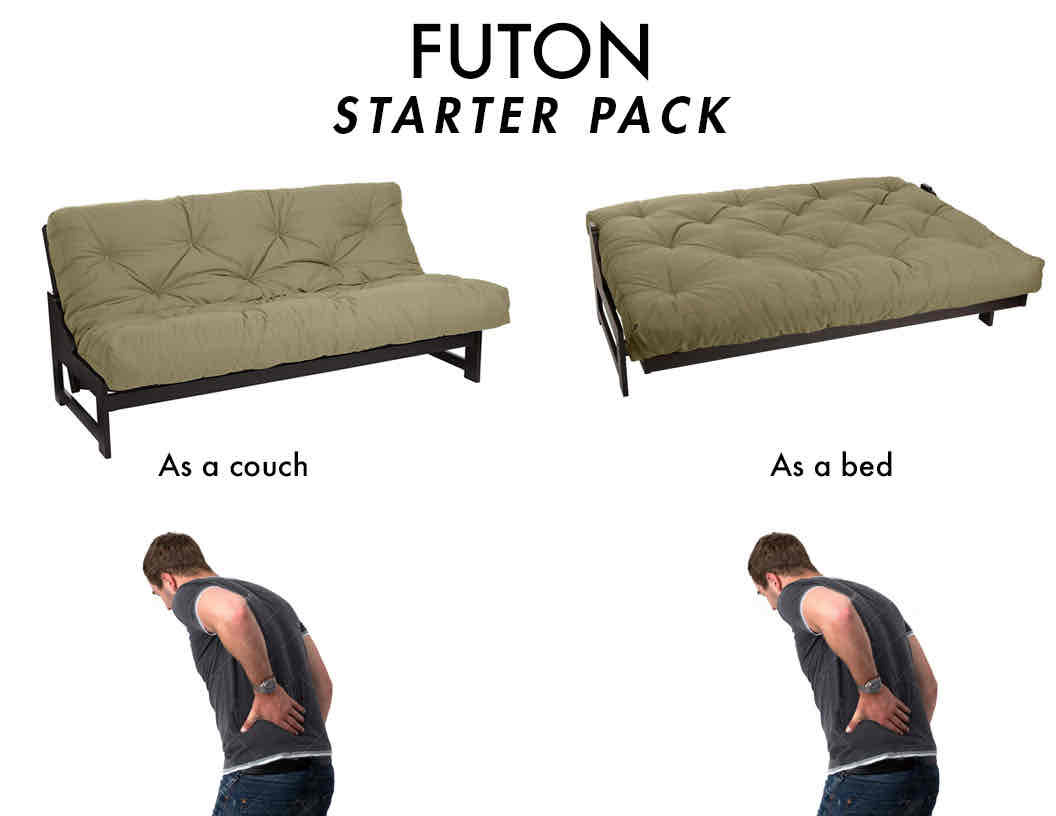this post was submitted on 22 Nov 2023
333 points (100.0% liked)
196
16488 readers
1505 users here now
Be sure to follow the rule before you head out.
Rule: You must post before you leave.
founded 1 year ago
MODERATORS
you are viewing a single comment's thread
view the rest of the comments
view the rest of the comments

I thought what made a futon a futon is that it is a matress, on the ground, without the frame
Not really. The lady who used to live on my couch bought a Japanese futon in an attempt to stop living on my couch, and my sister used to live on an American mattress sans frame and they’re wildly different things. An American mattress is 2-3x the thickness of a Japanese futon and while it’s less comfortable without a frame, you can comfortably live with it on a hard American style floor. A Japanese futon is insufficient on an American style floor and really needs the soft springy surface of a tatami floor.
It’s the difference between a support and comfort structure vs a person sized cushion
Wikipedia futon:
"Western-style futons" don't really sound like futons at all tbqh.
Futon are made from sheets of wool (traditionally) or cotton (modern) folded over several times and then tied together. They’re very soft and fluffy but can get flat as used. Daily folding and putting away of the futon helps keep them fluffy.